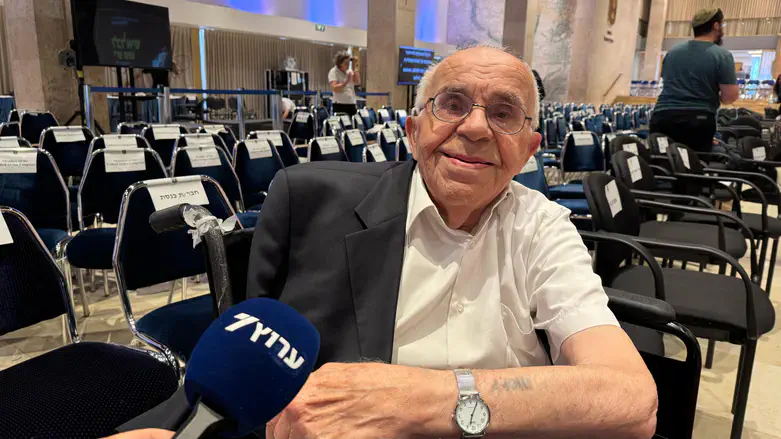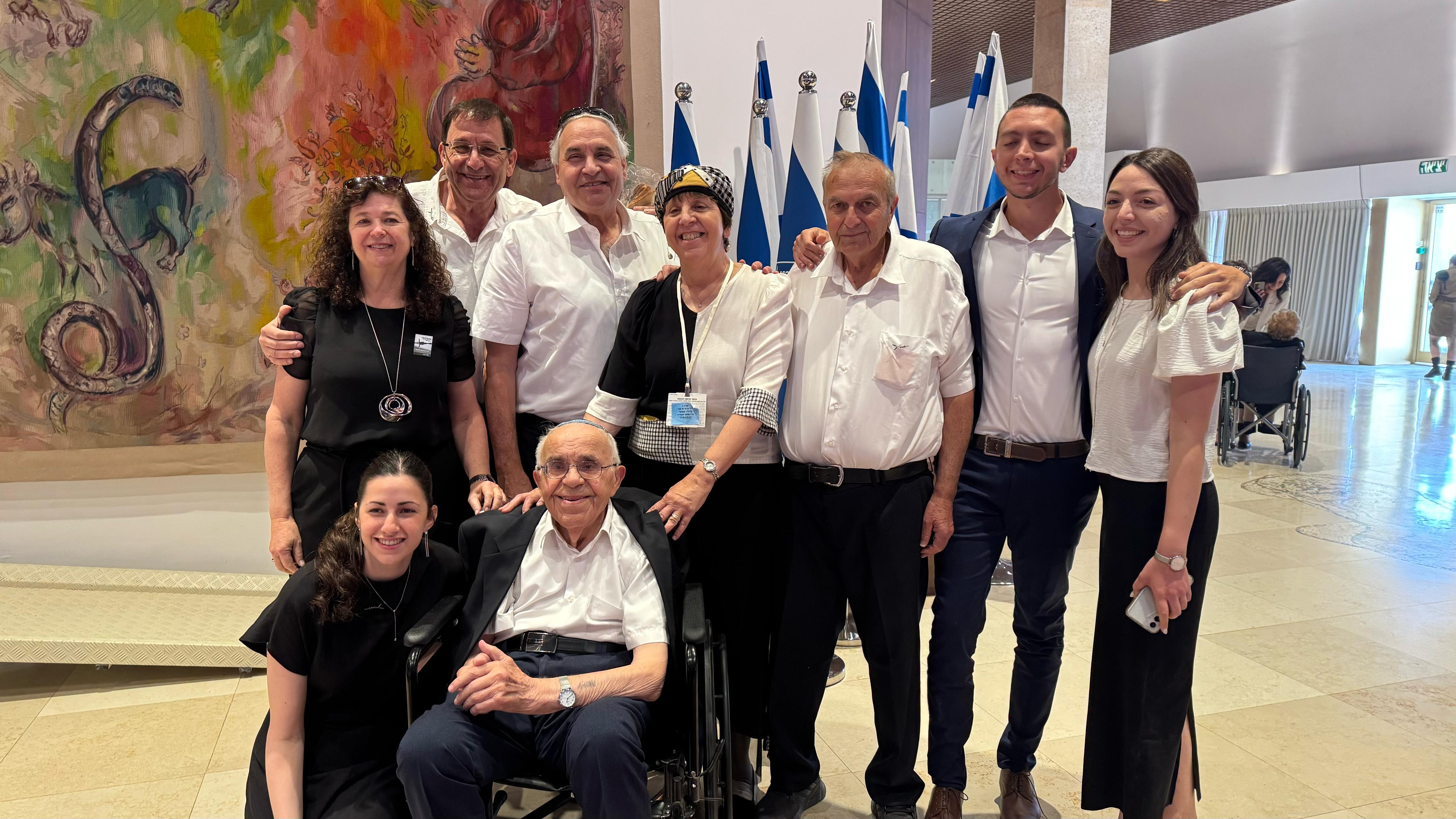
Holocaust survivor Menachem Haberman was interviewed by Arutz Sheva-Israel National News on Holocaust Memorial Day and shared his harrowing story from the Munkács ghetto, through the Auschwitz and Birkenau death camps, to Buchenwald – where he survived the death march and managed to escape. During the interview, he conveyed a message of unity and hope to the people of Israel.
"This Holocaust Remembrance Day marks eighty years since my victory over the Germans," Haberman opened the conversation. "I was in the Munkács ghetto, and I was in Auschwitz and Birkenau. My job was to remove ashes from the crematorium. I was a wagon driver, I transported things to the camps. Every day I carried milk to the train and brought the milk jugs to Mengele's bloc, where he conducted his experiments."
He went on to describe the long road to the Buchenwald camp. "We walked for five days wearing flip-flops, an undershirt, pants and a jacket. When we left, we got half a kilo (one pound) of bread. We walked in the cold of minus 20 degrees and we had to be careful not to step on the corpses on the way."
After journeying by foot, they reached a train station, where 160 people were crammed into one train car. "On the third day, towards noon, we hear the noise of planes. Several US planes descended and dropped bombs. Suddenly the guys said to me, 'Menachem, you're bleeding on your back'.”
Twenty-two people got off his car at Buchenwald and survived, out of the 160 who were there at the beginning of the journey. "I could barely get down, I had no strength. They dragged me. I was in children's block no. 66 until the beginning of April, when the Americans were coming close. That’s when the Germans started the death march. On the second day, they came to my block. There were about 800 children under 18. They selected about two hundred for the death march."

Two friends who Haberman met in the bloc told him about a sewage tunnel they had found in the area and offered him to escape from there with them, to avoid being sent to the death march. "There were guards standing about 300 meters from this pit so we sat there until it was dark and then we went out. We spent five days in this bloc, we didn't eat or drink. The next day we got up in the morning. We had no more energy. We couldn't walk."
On April 10, the Germans arrived and sent him to the death march. "When we were already outside the camp, there was an alarm from the American planes, so they immediately locked the doors and as I turned around by the fence I saw that the wires were not all the way down. I lay on my stomach. The guy above me pushed me and I ran to the bloc."
The next day, the camp went quiet. "Towards 10 o'clock, the camp commander called over the loudspeaker ordering all the guards around us to take their weapons and go to the headquarters. They approached us with machine guns. We said they must be coming for us. We said 'Shema Yisrael,' [the Jewish prayer one says also at a time when death is imminent] and a second later they were gone. That afternoon we heard a voice on the loudspeaker speaking in Yiddish. It was the Rabbi of the American army, who said, 'Children come out of the holes, you are free.' He came and took us. Out of the 800, we were only about 100."
Menachem wants to convey a message: "First of all, us Jews must be united. We must not be separated. How can that be? We must. We need to be united and be good, and raise children who will walk on the right path, help each other and protect our country. We haven’t got another place."
Haberman expressed objection to the comparisons made between the Hamas massacre and the Holocaust: "I hear people say that the hostages are like Holocaust survivors. I totally disagree with that. They are not Holocaust survivors – they are the survivors of the October 7th massacre."

